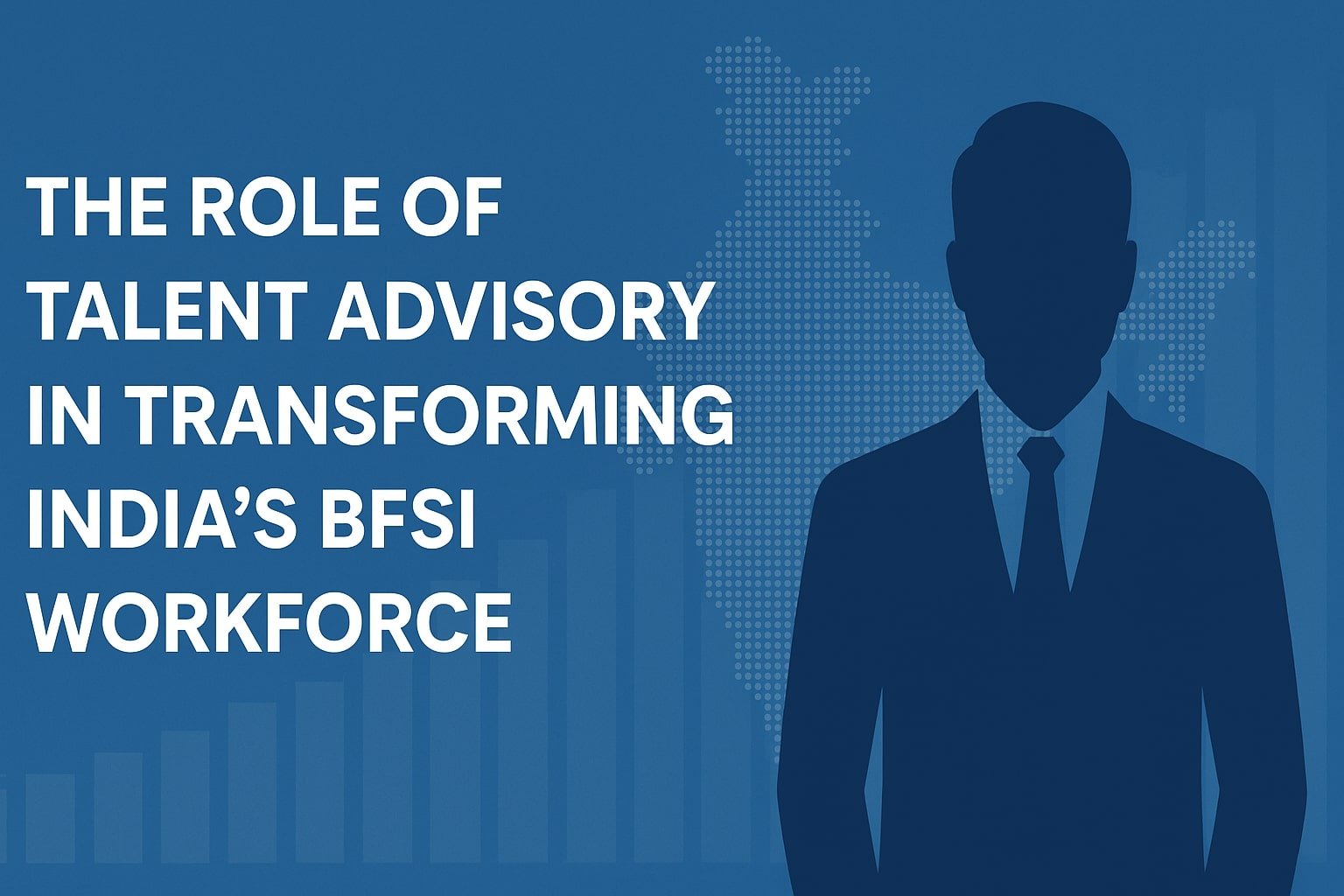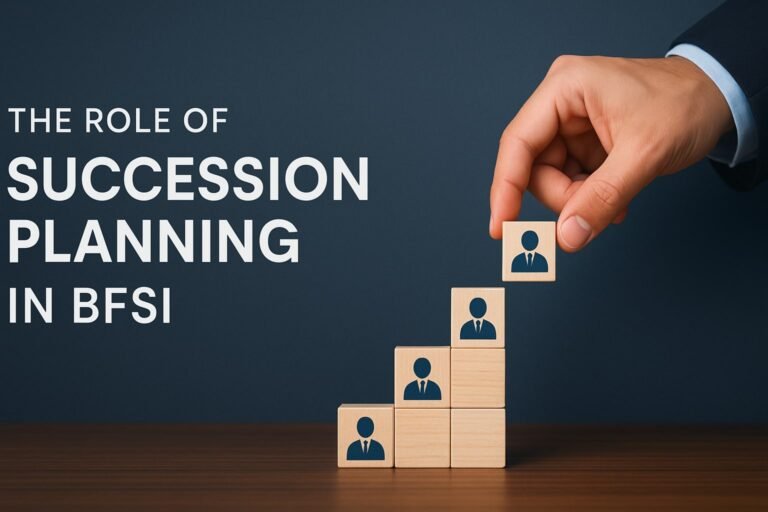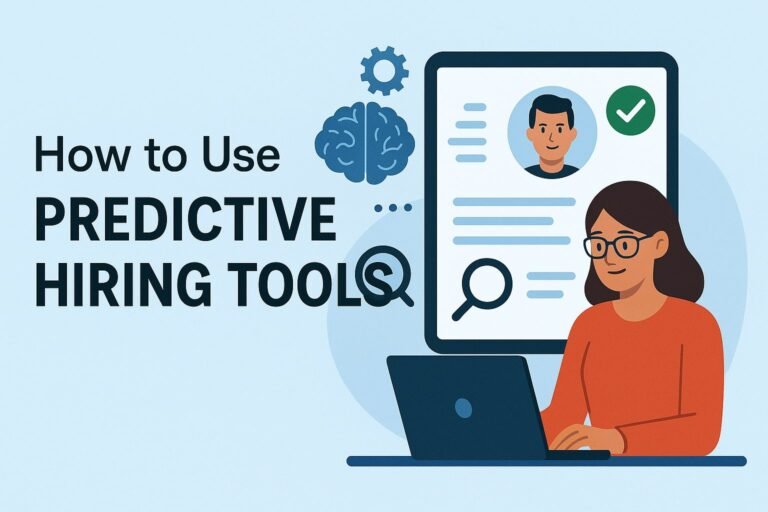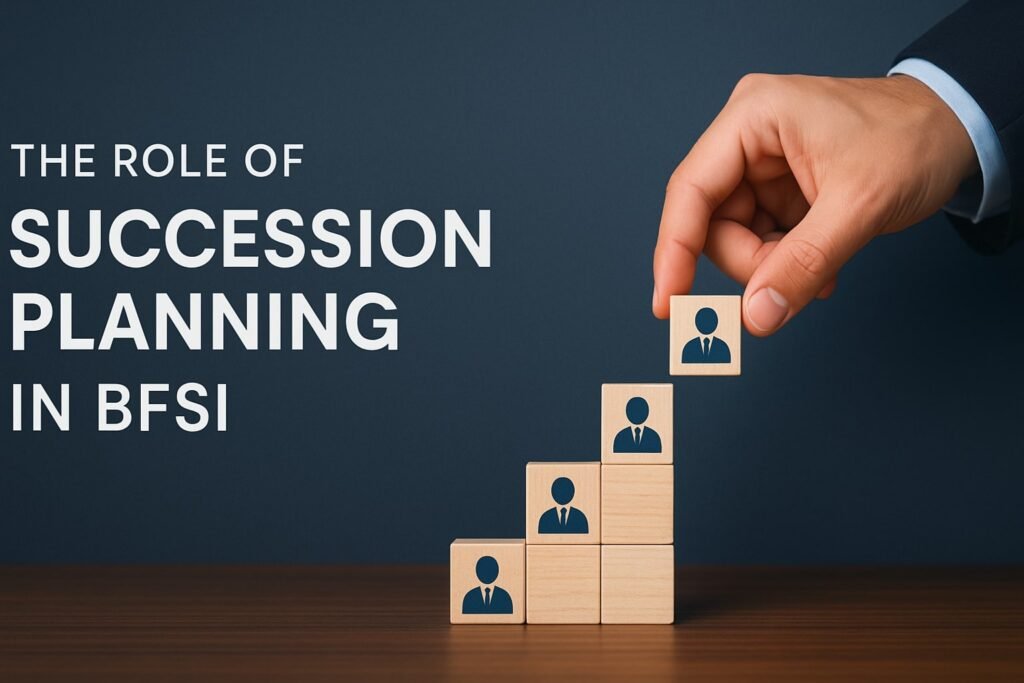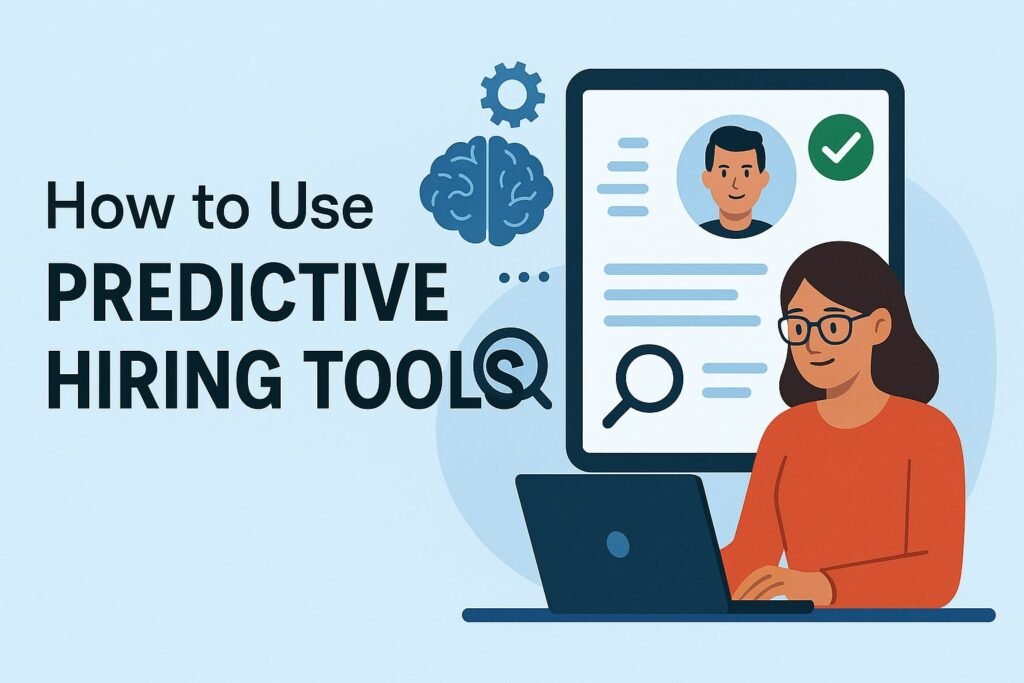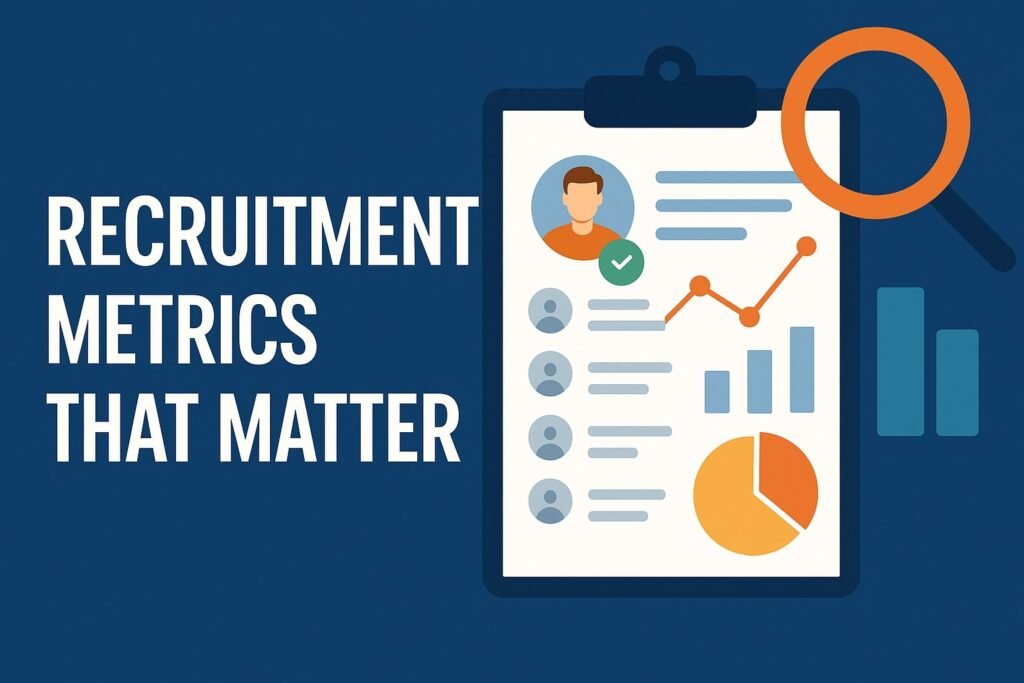The Role of Talent Advisory in Transforming India’s BFSI Workforce
Introduction
India’s BFSI sector — covering banking, financial services, and insurance — is under immense pressure to modernize. Regulatory reforms, digital-first competition, rising customer expectations, and a push for financial inclusion are forcing financial organizations to rethink not only their business models but also their people strategies.
That’s where talent advisory comes in. Beyond transactional hiring, talent advisory helps BFSI firms build sustainable, future-proof workforce strategies. From succession planning to workforce analytics, a solid talent advisory approach can future-proof financial services in a volatile and highly regulated environment. This blog breaks down what talent advisory is, why it matters, and how you can leverage it to transform your BFSI hiring approach.
1. What is Talent Advisory?
Talent advisory goes beyond filling open roles — it is a consultative, data-driven approach to:
- analyze workforce skills and gaps
- build long-term talent strategies
- benchmark compensation and benefits
- align hiring with business growth plans
- support leadership and succession planning
Think of it as an integrated partnership rather than a quick-fix staffing solution.
2. Why Talent Advisory is Crucial for BFSI
BFSI organizations are:
- rapidly digitizing
- facing increased competition from fintech
- operating under complex regulatory oversight
- experiencing shifting customer demands
Talent advisory supports these changes by ensuring your workforce is:
- future-ready
- resilient to disruption
- aligned with compliance requirements
- diverse and inclusive
3. Key Elements of an Effective BFSI Talent Advisory Strategy
- Workforce Planning — analyzing skills needed for growth areas like digital banking, compliance, and cyber-risk
- Talent Mapping — proactively identifying passive talent and building pipelines for critical roles
- Compensation Benchmarking — ensuring your packages stay competitive and fair
- Succession Planning — developing leadership pipelines for mission-critical positions
- Diversity, Equity & Inclusion (DEI) — supporting diversity goals and building fair processes
- Market Intelligence — keeping tabs on skill trends, salary shifts, and competitor activity
4. Benefits of Talent Advisory in Financial Services
- Faster Hiring — with proactive pipelines and better workforce data
- Reduced Risk — improved compliance and less chance of a bad hire
- Strategic Alignment — recruitment tied directly to business priorities
- Improved Retention — employees see clearer career pathways
- Future-Proofing — a resilient, adaptable workforce ready for change
5. How to Partner Effectively with a Talent Advisory Provider
When choosing a partner, look for:
- domain expertise in BFSI and financial compliance
- advanced tools for talent analytics and benchmarking
- experience in succession and leadership pipeline building
- commitment to ethical, fair, and transparent processes
A specialized partner can help you transform your workforce strategy from reactive to proactive.
6. Future Trends in Talent Advisory for BFSI
Going forward, talent advisory in India’s financial sector will increasingly focus on:
- predictive workforce analytics
- DEI as a competitive advantage
- leadership transformation for digital-first banking
- hybrid and flexible workforce models
- gamified assessments for fair, bias-minimized screening
As the financial landscape evolves, so must your talent strategies.
Conclusion
A forward-looking talent advisory approach gives India’s BFSI organizations the clarity and confidence to build future-ready teams. By aligning people strategies with business strategy, BFSI employers can compete in an unpredictable and fast-evolving market.
At Valorega TalentEdge, we partner with banks, NBFCs, insurance firms, fintechs, and investment organizations to deliver deep, data-driven, and customized talent advisory solutions.

